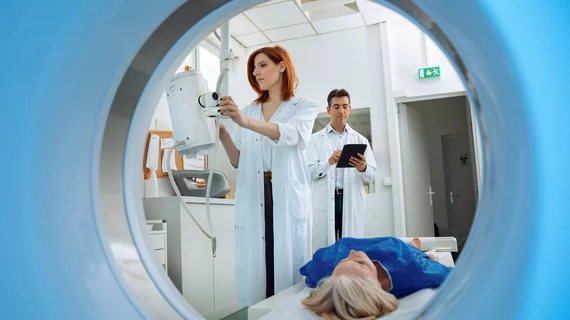Radiology expert notches $250K from Amazon, Heart Association for speedier MRI interpretation
A Seattle-based radiology professor has scored a $250,000 award from Amazon and the American Heart Association for harnessing artificial intelligence to vastly speed up MRI read times.
Chun Yuan, PhD, and colleagues beat out the competition by utilizing cloud-computing tools and AI to detect and predict blocked arteries and cardiovascular risk through magnetic resonance knee scans. Their solution helped reduce the time to read an MRI from four hours by a human radiologist down to just seven minutes using a computer program, according to an AHA announcement.
“The especially exciting thing about this research is that we are able to use our technology to detect diseased blood vessels in knee images that were not acquired with that in mind, as well as using artificial intelligence to greatly shorten the time it takes to review these images,” Yuan, who teaches radiology and bioengineering at the University of Washington, said in a statement.
The AHA’s Institute for Precision Cardiovascular Medicine collaborated with Amazon Web Services to fund the competition which is aimed at using machine learning to bolster care. Competitors used both Amazon service credits and the Heart Association’s Precision Medicine Platform’s data analytics capabilities to devise their intervention.
Yuan used deep learning to delineate vessel wall contours, quantify vascular features and identify arteries with disease, all using MRI knee scans. This work may eventually help propel the diagnosis of cardiovascular conditions, and offer new opportunities in precision medicine, the AHA noted.
The winnings include a $200,000 grant from the association along with $50,000 in Amazon Web Services credits to use in the Precision Medicine Platform. Since 2013, the institute has doled out 93 awards totaling more than $30 million.

